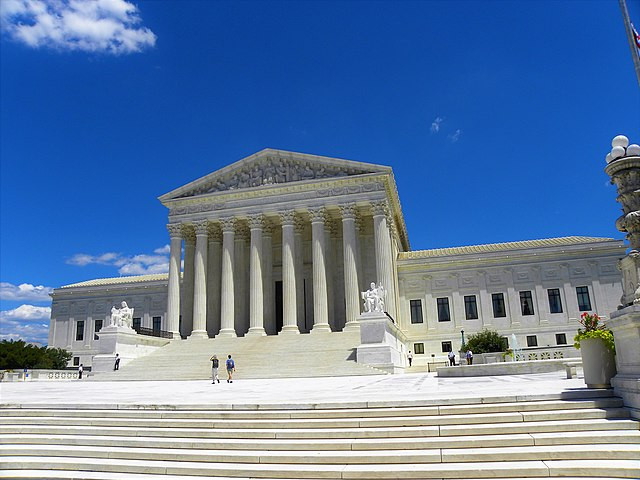The U.S. Supreme Court on Tuesday is set to hear arguments in a case brought by Christian and Muslim families in Montgomery County, Maryland, who are challenging their school district's refusal to allow opt-outs from elementary school instruction involving LGBT-themed storybooks. The parents argue the policy violates their First Amendment rights by forcing their children to participate in lessons that conflict with their religious beliefs.
The lawsuit was filed by families represented by the Becket Fund for Religious Liberty, including plaintiffs Tamer Mahmoud, Enas Barakat, Chris and Melissa Persak, Jeff and Svitlana Roman, and a group called Kids First. They contend that the Montgomery County Board of Education is compelling their children's participation in lessons that "promote one-sided transgender ideology, encourage gender transitioning and focus excessively on romantic infatuation - with no parental notification or opportunity to opt out."
The Montgomery County school system, Maryland's largest, adopted the use of five storybooks in 2022 as part of its English Language Arts curriculum. The district stated the stories were meant "to better represent all Montgomery County families" and are part of a broader effort to promote "educational equity." Among the books is Born Ready, about a transgender child, and Prince & Knight, a fairy tale featuring a same-sex relationship.
While the district initially allowed parents to opt out of these lessons, it changed course in March 2023, announcing that advance notice would no longer be given and that opt-outs were no longer permitted. School officials said managing frequent requests had become unworkable and disruptive to instruction.
"What's at stake is the long-recognized parental right in our law and traditions for parents to direct the religious education and upbringing of their children," said Michael O'Brien, attorney for the Becket Fund. "The government cannot substantially interfere with that by compelling instruction on sensitive sexuality and gender-identity issues that strike at the heart of parental decision-making authority on matters of core religious importance."
The families' request for a preliminary injunction was denied by both a Maryland district court and a divided panel on the 4th U.S. Circuit Court of Appeals, which found no evidence that the storybooks coerced students or families into abandoning their beliefs. The appeals court ruled there was no First Amendment violation, citing the absence of any requirement for students to change their conduct or affirm ideas contrary to their faith.
Lawyers for the school board told the Supreme Court that "exposure to content that parents object to on religious grounds is not the same as impermissibly coercing students to disavow their religious practices." They emphasized that teachers are prohibited from using the materials to pressure students and that no children were penalized or forced to affirm contrary views.
In their petition to the Supreme Court, the parents said the lower courts' decisions undermine the right of parents to "protect their children's innocence and direct their religious upbringing." They further argued the policy places them in an "impossible" position - requiring them to either expose their children to teachings they believe are religiously harmful or "forgo the benefits of a public education at the sizeable cost of either paying for private school, homeschooling, or facing government fines and penalties."
The case has drawn significant national attention, with organizations including the American Civil Liberties Union and the Freedom From Religion Foundation filing amicus briefs. The ACLU warned that granting the parents' request could force schools to "tailor their educational materials to align with the religious beliefs of individual students and/or their parents."
A group of religious liberty scholars also filed a brief supporting the parents, writing that courts have failed "to understand the burden on parental religious rights that can result from mandatory school instruction on highly fraught topics."
The Trump administration has voiced support for the parents, aligning the case with broader efforts to assert parental rights and religious liberty in public education. A ruling from the Supreme Court is expected by early July, with potential implications for how schools nationwide balance curriculum decisions against constitutional protections for religious exercise.






